ABOUT US
Mighty oaks from little acorns grow. Our goal is many strong trees, which together form a robust forest. And the whole is greater than the sum of its parts: the forest is more than just a collection of trees – it is an ecosystem with a great many different functions and purposes.
One of these is regulating the climate: more rain falls on forests than in other places. Evaporation of this rain and shade from trees cool off our warmed-up earth. Moreover, trees prevent erosion, by absorbing wind and water, and their roots hold the soil together. The leaves absorb CO2 and store it within the tree. Forested areas are an important source of food, wood and other products, and accommodate high biodiversity. Forests make the earth and its inhabitants more resistant to climate change.
But forest ecosystems are under pressure throughout the entire world, due to deforestation and soil degradation. As many as 2 billion hectares have now become degraded. Thus, ecosystems function less efficiently, resulting in a deterioration of ecosystem services. If deforestation continues at this rate, the earth will ultimately no longer be habitable for humans.
We restore and protect forest ecosystems all over the world. We replant trees and protect existing forests. We safeguard the long-term sustainability of our projects, by continuing to monitor and evaluate the growth and development of the forest, and to cooperate closely with our local partners.

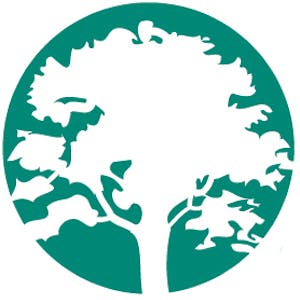
Face the Future specializes in the development, management and monitoring of forest projects, carbon project certification and the marketing of carbon credits. Our first reforestation project began in 1992. Since then, we and our local partners have realised more than 50,000 hectares of forest on four continents. We also provide consultancy services with regards to forest project development, management, monitoring and certification.
Our small team consists of highly motivated staff who are passionate about our mission. We are foresters, ecologists, project managers, finance and policy experts, and much more. Our approach is practical, and the diversity of our professional and cultural backgrounds drives our team to creatively work and learn together in different project settings in order to achieve greater impacts.
Are you motivated to help restore and protect forest ecosystems all over the world, and do you think you could be an asset to our team? Open applications are always welcome! Reach out to us through our contact page with a copy of your CV and motivation, and we will contact you. Please elaborate on why you would like to work for our company, your experience and skills, and what you would bring to our team.
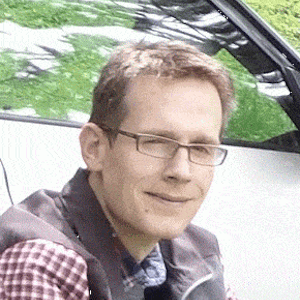
Experience
Forest restoration and conservation, REDD+, forest and climate policy, forest certification. Martijn holds a Master of Science degree in ‘Forest and Nature Conservation’ from the Wageningen University, and has 12 years of experience in forest and climate projects.
Motivation
“As 10-year-old WNF ranger, I went from door to door in my street, selling square metres of tropical forest for fundraising. Now, I want to do something professionally that has real value and helps to make the world a better place. In my work for Face, I’m involved with forests and nature: the things in the world that are under the most pressure. For me, it’s about a combination of combating climate change and contributing to sustainable development.”
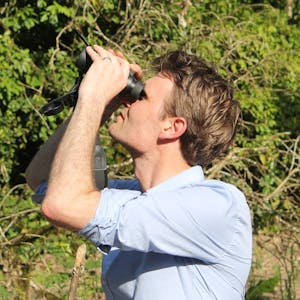
Experience
Wouter holds a Master of Science degree in ‘Forest and Nature Conservation’ from the Wageningen University, with specialisation in ‘Resource Ecology’. He has over 10 years of experience in forest ecology, forest and wildlife monitoring, agroforestry, REDD+, remote sensing and GIS.
Motivation
“I became fascinated by tropical rainforests and the wildlife that lives in them when I was quite young. When I heard news stories about deforestation, I immediately thought about all those animals that no longer had any place to live. Student internships in tropical forests confirmed my fascination. I also learned that forests must be viewed in conjunction with the local population. That’s why I want to combine purposes in my work for Face, so that they reinforce each other. Thus, a forest with high biodiversity and food production – all working together.”
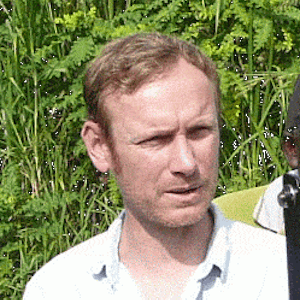
Experience
Kars holds a Master of Science degree in ‘Forest and
Nature Management’ from the Wageningen University, with specialisation in ‘Forestry
Economics and Environmental Policy’. He has over 10 years of experience in Forestry, forest restoration, forest monitoring, forest carbon and remote sensing and GIS.
Motivation
“I grew up in a village in the middle of the Papuan tropical rainforest in Indonesia. I know from the time I spent there how extraordinary such an ecosystem is and how closely the culture of the inhabitants is tied to the forests. In my work for Face, I want to protect these ecosystems, by giving them economic value, other than just the timber alone.”
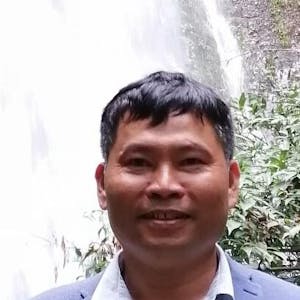
Experience
Long holds a BSc degree in Forestry of Vietnam Forestry University and an MSc degree in Carbon Management of the University of Edinburgh. He has been working for more than twenty years in many countries and has gained deep knowledge and experience in natural resource management, landscape restoration, sustainable land management, land use planning, land tenure, climate change mitigation and adaptation, biodiversity conservation, protected area planning and management, and payment for environmental service.
Motivation
"I love nature, particularly tropical forests and wildlife, but I have seen everywhere that tropical forests are overexploited and destroyed. I really want to work toward building better places, where people are living in harmony with nature and I believe that solutions are always there. However, they are not the same everywhere, we have to find out where and how it works, this is the challenge and of course the excitement as well."

Experience
Jan holds a Master of Science degree in 'Tropical Forestry' from Bangor University, Wales, UK. Combined with many years of experience as IT professional, Jan has a strong technical and analytical background. This is reflected in his experience in the more technical aspects in the field of forest and nature management, like forest monitoring and inventory, silviculture, remote sensing, and GIS. He has worked on multiple forest related projects in countries like Ghana and Suriname.
Motivation
“I don’t know when it happened, but at a certain point in life I knew I wanted to work with Tropical Forests. Tropical forest ecosystems are impressive and breath-taking. Unfortunately, the pressure on these ecosystems is immense, making preservation and regeneration of vital importance. Not only for their intrinsic value and their global impact, but also for the local population depending on the ecosystem services provided. Working at Face the Future, I can make my modest contribution in preserving these unique and essential ecosystems.”

Experience
Boris holds a Master of Science (MSc) degree in ‘Economics’ from the Free University and is pursuing an MSc degree in ‘Forest and Nature Conservation’, with a specialisation in Wildlife Ecology and Conservation, at Wageningen University.
Motivation
“During travels in the tropics and Sub-Saharan Africa I became passionate about wildlife and nature conservation. On these trips I saw nature’s vulnerability to human actions and a feeling grew within me that I want to make a contribution to protect the natural world. Therefore, I decided to enrol at Wageningen University to study forest and nature conservation alongside my studies in economics. In my work I aim to employ my knowledge and skills as both an ecologist and economist to make a meaningful contribution to the conservation of the natural world.”
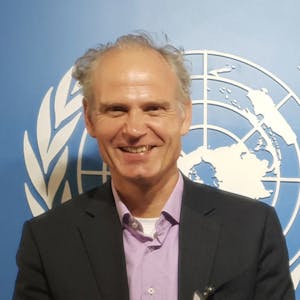
Experience
Hans holds a MSc. degree in Physical Geography of the University of Amsterdam (majoring in geomorphology and landscape ecology) and a Ph.D. in Environmental Sciences of the same university (PhD thesis on ecological forest site typology of mountainous areas). He has been working for more than 25 years in various developing and tropical countries for academic institutions, conservation NGO’s, governments and multilateral donors and institutions (Worldbank-GEF, GCF, UNDP, UNEP, WWF, ILO, AF). Besides longer-term residential in-country assignments in Indonesia, Brazil and Bhutan, Hans has gained extensive experience with assignments covering the entire project cycle, from project concept development and full project design and project implementation to mid-term and terminal evaluations. Focus in these assignments has been on sustainable land and forest management (SLM/SFM), climate change adaptation and mitigation, REDD+ and carbon assessments, NRM, DRM and natural capital accounting and assessment.
Motivation
Landscapes have always fascinated me and during my studies I learnt how ecosystems function and provide essential services to communities. But, these services are under increasing pressure through climate change and extremes, human actions and these trends have a profound impact in particular on the most vulnerable. To be able to contribute to projects that have a positive effect on climate, people and nature, in a dynamic team setting, is for me the definition of valuable work.

Experience
Francisco’s academic track record includes a master’s degree in Environmental Socioeconomics (CATIE, Costa Rica), a bachelor’s degree in Forest Engineering (Bolivia), and several courses on forest-related topics (e.g., forest carbon projects, climate-smart landscapes, tropical ecology and conservation). He has worked for INGOs, governments and timber companies, on FSC-sustainable forest management, community forestry, forest audits, and forest policy in Latin American countries (Bolivia, Costa Rica, and Nicaragua). Francisco has also been working on gender equity, renewable energies, and wetlands restoration projects carried out in Europe, Africa, and Asia.
Motivation
I am fascinated by the interlinks between nature, people, and culture; at the same time, I am concerned about the deterioration of nature. These aspects took me toward the forestry path. Through my work, I seek to contribute to achieving a balance between development and conservation.
